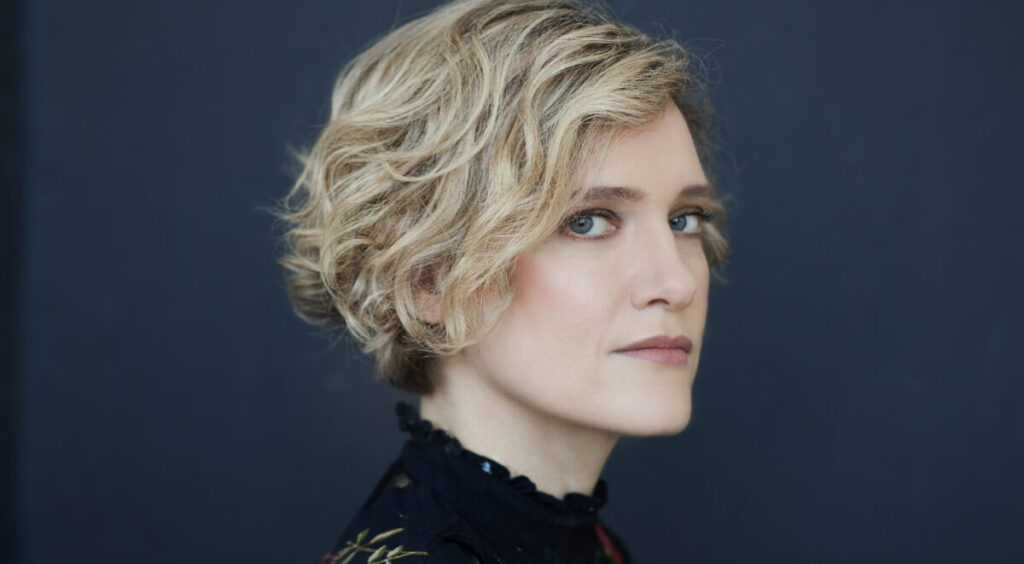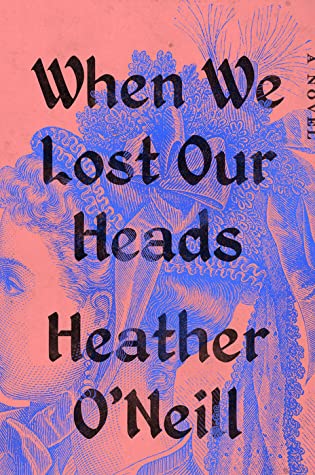Portrayal—if we take the word at its origin, to draw or to paint, to depict in words—may well be the aim of any novelist. Few have mastered portrayal the way Heather O’Neill has. In O’Neill’s novels, clusters of words move across the page the way tiny black spiders might dance across the keys of a forgotten piano: carefully, quietly—their mystical inner strength somehow enough to sound out the resonant notes to a melancholy song. Her uncanny, astonishing skill with metaphor unsettles the regularity of the world; and we find ourselves seeing in ways we previously could not have imagined. It was my great pleasure to speak with Heather about her latest novel, When We Lost Our Heads.
Curated from Prism International
Interview by Daryl Sneath

Daryl Sneath: I’ve heard you mention that you’re always reading, even while you write. I’m wondering: what were you reading when you wrote When We Lost Our Heads—a work which seems to be, in part, in conversation with the Victorian novel itself?
Heather O’Neill: When I was writing When We Lost Our Heads, I didn’t read any Victorian novels, but when I was young I read so, so many. They became, in a way, part of my consciousness as a writer. One of the things I wanted to do with When We Lost Our Heads was play with all the conceits of the Victorian novel so that it would be a modern take on one. As a writer you always have to be such a big, big reader. In my research, I was looking for all the little details that typically were left out of Victorian novels, specifically details about women in that age.
DS: Speaking of details, there’s a CBC piece in which you list some of the books which have had an influence on you as a writer. In it, you mention a novel by Elizabeth Bowen which features a description of a swan.
HO: Yes. The Death of the Heart. It’s such a lovely novel. I’ve always loved novels, especially old ones, that feature a sad, forlorn, mopey sort of girl in them. I just find them so incredibly beautiful. In The Death of the Heart, there’s a scene where the narrator describes a swan slipping by and it’s such a beautiful passage. I remember thinking in that moment—I was quite young—that I have to have swans in every single novel I write when I grow up. It’s funny how swans have come to mean so many things. They mate for life. They’re beautiful. They’re violent. In my books I’m often dealing with the idea that when we love someone so deeply, or maybe too deeply, we risk being destroyed by them. I like how the swan works as a symbol of the toxicity of romantic love.

DS: There are a number of references from the capital “r” Romantic period in When We Lost Our Heads. Were these allusions you had tucked away with the intention of bringing them into the narrative, or did they occur to you while writing the novel?
HO: A lot of things in novels are things that have been kicking around in your brain for so long. When I was young I read Anne of Green Gables and became obsessed with that book to an uncomfortable degree. There’s a scene in which Anne recites a poem for an elocution contest, which I just love, and I always wanted to have a character who found herself reciting a poem. Sadie became one of those characters. I wanted the poem to be written by a Victorian woman, and I thought, what about “Goblin Market?” I hadn’t encountered it since university and I didn’t really have a clear memory of it, but when I reread it I thought, oh my, this is so perverse and overtly sexual. The girls go into the forest and meet these goblins that seduce them and poison them, and the girls come to be in this crazy state of ecstasy and torment. I thought, this is the perfect poem. It came to inform a lot of the ways the characters behaved.
DS: For those who haven’t read the novel, how do the characters behave?
HO: They’re outrageous in the way they behave. They constantly cross the line in terms of how a young woman is “supposed to” behave. They have these wonderful, incredible observations about the world and they learn about the darkness and the terrible aspects of the human psyche. I feel writing is like that too; you have to go into the realm of what’s unspeakable. You bring forward the dark edge of everyone’s personality and slip inside their strange motivations. I think that’s what makes human beings wonderful and exciting, and I love exploring those aspects.
DS: Can you speak a little about the characters’ names in the novel?
HO: Each character is inspired by a French Revolutionary figure. In conversations with my editors, we wanted to ensure you could read the book without knowing anything about the French Revolution. For anyone who noticed, the references would be like little treasures to unbury. It’s interesting—when I started writing I thought I would feel closest to Robespierre because, in history, he was an orphan who had this beautiful, wonderful ability to speak. He was always being trotted out to aristocrats to recite different pieces. When he grew up he used his eloquence and his writing ability to basically execute them all, and then proceeded to go mad. And so, I thought, hey, this seems very similar to me, doesn’t it? However, when I was creating Sadie, who is based on the Marquis de Sade—such a problematic, disgusting person, who at the same time was so influential through his writing—I found myself drawn to her. I really learned so much about myself through writing Sadie. I related to so many aspects of her character.
DS: I love Sadie, but as much as I love her, she’s not exactly trustworthy.
HO: Hah. No. You can’t trust Sadie. Something I’ve found in talking with people about the novel is that it works a little like a horoscope. If someone tells me they like Sadie, I think, hmm, I don’t think I can trust this person. If someone tells me they like George, I think, well, this person must be kind and wonderful and I absolutely can trust them.
DS: I should say—and not just to save myself—that I love George, too. Like all of your characters, she is distinctly memorable. Can you tell us about writing George?
HO: When I created George she was immediately a genderqueer character. When I was a child I spent a lot of time in Provincetown; at that time, my mother transitioned. I was so exposed to that world at a time before we had names for it all. My mother changed their name to Abraham. She would go around the streets of Provincetown in a top-hat. It was the nineties and anything went gender-wise there. When I created George I wanted her to inhabit that fun, subversive, genderless world I had encountered as a child.
DS: Everywhere in your writing we see and hear layers of fairy tales. Is that intentional?
HO: Fairy tales feel like the fabric of my voice. I read so many as a child; they all had this subtext of sexuality and darkness that I really adored. I try in my own writing to have the electricity the original fairy tales had—particularly for the girl characters. The wit those girls had—it was a wit that helped them survive.
Heather O’Neill is a novelist, short story writer and essayist. Her novels include Lullabies for Little Criminals, The Lonely Hearts Hotel, and When We Lost Our Heads. She has won numerous prizes for her books, including Canada Reads, the Danuta Gleed Award and the Hugh Maclennan Prize, and has been shortlisted for the Governor General Award, the Orange Prize, and the Scotiabank Giller Prize. She has also been awarded the Gold Prize for essay writing at the National Magazine Awards, and she has contributed to numerous publications including The Guardian, The New York Times Magazine, and The Globe and Mail. Born and raised in Montreal, she lives there today.
Daryl Sneath was raised in a small town by a lake. His two novels are All My Sins and As the Current Pulls the Fallen Under. Currently, he lives in another small town by a river with his wife, Tara, and their three children, Ethan, Penelope, and Abigael. He can be reached at daryl.sneath@gmail.com.
- Life’s Work: An Interview with Danielle Steel
- Richard Flanagan interview: Winning the Booker was ‘a catastrophe of good fortune’
- “The literature of today will not be completely cut off from the literature of the future”: Interview with Mozid Mahmud
- Abdulrazak Gurnah Refuses to Be Boxed In: ‘I Represent Me’
- When asked what I follow/believe, my answer is easy. ‘Les Cook’